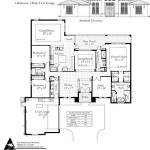Essential Aspects to Consider When Planning Your Dream House
Building your dream house is an exciting and fulfilling endeavor, but it also requires careful planning and attention to detail. It is not just about creating a beautiful structure but also about designing a functional, comfortable, and sustainable home that meets your specific needs and aspirations.
1. Define Your Needs and Lifestyle
The first step in planning your house is to clearly define your needs and lifestyle. Consider the number of bedrooms and bathrooms you require, the size of the living spaces, and any special features that are important to you. Do you need a home office, a dedicated playroom for children, or a spacious outdoor area? Understanding your requirements will guide the design and layout of your house.
2. Set a Realistic Budget
Determining your budget is crucial for realistic planning. Research construction costs in your area and consider the size, complexity, and amenities you desire. Factor in the costs of materials, labor, permits, and any unexpected expenses. A clear budget will help you prioritize your needs and make informed decisions.
3. Choose the Right Location
The location of your house has a significant impact on its value, convenience, and quality of life. Consider factors such as neighborhood amenities, proximity to schools and workplaces, access to transportation, and views. Research different areas and visit potential sites before making a decision.
4. Hire a Qualified Architect or Designer
An experienced architect or designer can translate your vision into a detailed plan that meets building codes and regulations. They will work closely with you to capture your design preferences, optimize space utilization, and create a functional and aesthetically pleasing home.
5. Pay Attention to Energy Efficiency
Energy efficiency is not only good for the environment but can also save you money in the long run. Consider incorporating energy-saving features such as insulation, double-paned windows, energy-efficient appliances, and solar panels. These measures can reduce your energy consumption and create a more comfortable living environment.
6. Prioritize Lighting and Ventilation
Natural light and proper ventilation are essential for a healthy and inviting home. Design your house to maximize natural light through windows and skylights. Ensure proper airflow and ventilation by incorporating cross ventilation and installing energy-efficient lighting systems.
7. Consider Outdoor Spaces
Outdoor spaces, such as patios, decks, or balconies, can significantly enhance the livability of your house. These areas provide opportunities for relaxation, entertainment, and connecting with nature. Plan and design these spaces carefully to complement the interior layout and create a seamless transition between indoor and outdoor living.
8. Stay Informed and Communicate Regularly
Throughout the planning process, stay informed about construction techniques, materials, and design trends. Communicate regularly with your architect, contractor, and other professionals involved in the project. Ask questions, provide feedback, and ensure that your vision is being realized.
By carefully considering these essential aspects, you can create a plan for a house that is both functional and beautiful, meets your specific needs, and enhances your quality of life for years to come.

House Plans How To Design Your Home Plan

House Plans How To Design Your Home Plan

Small House Design 2024001 Pinoy Eplans Floor Plans

Top 50 Amazing House Plan Ideas Engineering Discoveries Budget Plans Bungalow Floor Simple

Where You Can Buy House Plans Live Home 3d

House Plans How To Design Your Home Plan

Peach Tree House Plan Ranch Floor Designs

House Plans Home Floor Architecturalhouseplans Com

House Plans How To Design Your Home Plan

Simple Best House Plans And Floor Affordable








